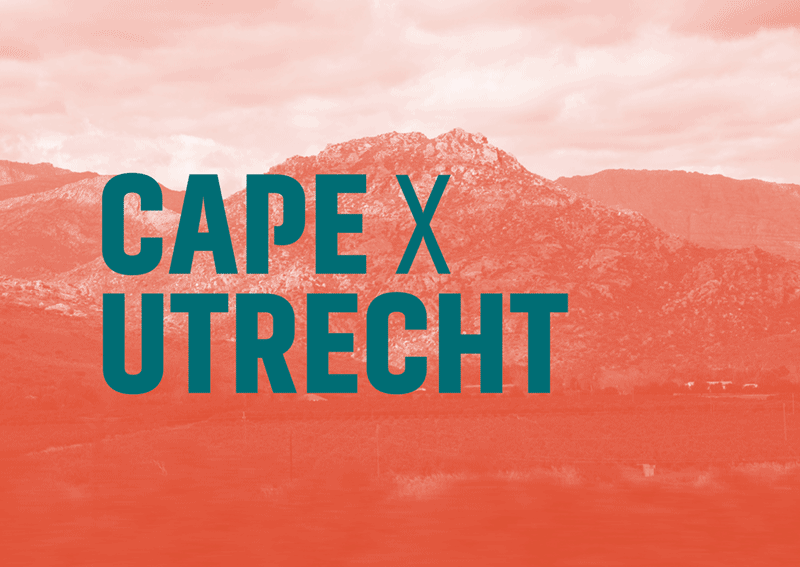[Voor Nederlands: zie onder]
The exhibition CAPE X UTRECHT dives into the relationship between the Cape colony and Utrecht. When the Dutch government and the King recently apologized for the Dutch involvement in slavery, South Africa was not mentioned. Who remembers the history of Indian Ocean slavery? How does this history affect people in current-day South Africa? And why is this history largely forgotten in the Netherlands?
For thousands of years, |xam, Khoekhoe, and many other peoples lived in Southern Africa. From 1652, the Dutch East India Company (VOC) established a colonial settlement in the Cape, which by 1658 relied completely on an inhumane system of slavery, one that also linked Utrecht to the Cape. This history laid the foundation for the cruel system of apartheid, which is a Dutch word.
CAPE X UTRECHT: hidden histories of Slavery & its afterlives is a collaborative project of HKU fellow Nancy Jouwe and The Black Archives. The exhibition features unique archival material and art works by Jasper Albinus, Diana Ferrus, Neo Muyanga, Shishani Vranckx, Judith Westerveld, alumna HKU Photography Farren van Wyk, and Carine Zaayman.
During the exhibition, we offer a public program and guided tours. For details: see below!
______________________________________________________________
HKU-fellow Nancy Jouwe en The Black Archives presenteren: Verborgen geschiedenissen van slavernij en haar erfenis
De tentoonstelling CAPE X UTRECHT duikt in de relatie tussen de Kaapkolonie en Utrecht. Toen de Nederlandse regering en de koning recent hun excuses aanboden voor de Nederlandse betrokkenheid bij de slavernij, werd Zuid-Afrika niet genoemd. Wie herinnert zich de geschiedenis van slavernij in de Indische Oceaan nog? Hoe beïnvloedt deze geschiedenis mensen in het huidige Zuid-Afrika? En waarom is deze geschiedenis in Nederland grotendeels vergeten?
Duizenden jaren lang leefden er |xam, Khoekhoe en vele andere volkeren in Zuidelijk Afrika. Vanaf 1652 vestigde de Verenigde Oost-Indische Compagnie een koloniale nederzetting in de Kaap, die vanaf 1658 volledig afhankelijk was van een inhumaan slavernijsysteem, dat ook Utrecht met de Kaap verbond. Deze geschiedenis legde de basis voor het wrede systeem van apartheid, wat een Nederlands woord is.
CAPE X UTRECHT: Verborgen geschiedenissen van slavernij en haar erfenis is een samenwerkingsproject van HKU-fellow Nancy Jouwe en The Black Archives. De tentoonstelling combineert uniek archiefmateriaal met kunstwerken van Jasper Albinus, Diana Ferrus, Neo Muyanga, Shishani Vranckx, Judith Westerveld, alumna HKU Photography Farren van Wyk, en Carine Zaayman.
Exhibition / tentoonstelling
7 October – 4 November
Wed./wo – Sat./za , 13.00 – 18.00
Opening
Friday/vrijdag 6 October, 17:00h/uur
During the exhibition we offer a public program and guided tours (in English):
Saturday 14.10
16.00 h: Guided tour through the exhibition with Nancy Jouwe
Saturday 21.10
11.00 – 15.00h: Conference in collaboration with CASCO at Het Huis, Utrecht
16.00h : Guided tour through the exhibition with Nancy Jouwe
Saturday 28.10
14.00 – 15.00h: City Walking Tour CAPE X UTRECHT (Starting at AG, ending on Domplein)
16.00h: Artist talk – Nancy Jouwe in conversation with Judith Westerveld, Jasper Albinus & Shishani Vranckx (AG)
Saturday 04.11
14.00h: Artist talk – Nancy Jouwe in conversation with Carine Zaayman & Farren van Wyk (AG) / Artist talk – Nancy Jouwe in gesprek met Carine Zaayman & Farren van Wyk (AG)
16.00 – 17.00h: City Walking Tour CAPE X UTRECHT (Starting at AG, ending on Domplein)
(Due to circumstances we to had move the City Walking Tour of Thursday 26.10 to Saturday 28.10 and the Tour of Thursday 2.11 tot Saturday 4.11. Apologies for any inconvenience this may cause.)
Nancy Jouwe is a cultural historian and works as a freelance researcher, writer, lecturer and public speaker with a focus on the (post)colonial past and present, intersectionality and social and cultural practices. In 2011 Jouwe, with Esther Captain, initiated the city walk Sporen van Slavernij Utrecht and as co-editor and -author she published Slavery and the City of Utrecht in 2021. Since 2022 she has been a fellow at HKU. / Nancy Jouwe is cultuurhistoricus en werkt als freelance onderzoeker, schrijver, docent en publiek spreker met een focus op het (post)koloniale heden en verleden, intersectionaliteit en sociale en culturele praktijken. In 2011 initieerde Jouwe met Esther Captain de stadswandeling Sporen van Slavernij Utrecht en als co-redacteur en -auteur publiceerde ze in 2021 Slavernij en de stad Utrecht. Sinds 2022 is ze als fellow verbonden aan de HKU.
The Black Archives (TBA) is a historical archive and cultural center in Amsterdam where people can go for inspiring conversations, substantive activities and books from Black and other perspectives often under-researched elsewhere. As part of the commemorative year, TBA organizes public programs on underexposed aspects of slavery and its legacy, healing and recovery. At its Amsterdam location, the exhibition No Healing, Without Recovery is on view through the end of October. / The Black Archives (TBA) is een historisch archief en cultureel centrum in Amsterdam waar mensen terecht kunnen voor inspirerende gesprekken, inhoudelijke activiteiten en boeken vanuit Zwarte en andere perspectieven die elders vaak onderbelicht blijven. In het kader van het herdenkingsjaar organiseert TBA publieksprogramma’s over onderbelichte aspecten van de slavernij en haar erfenis, heling en herstel. In haar vestiging Amsterdam is de expositie Geen Heling, Zonder Herstel te zien tot eind oktober.
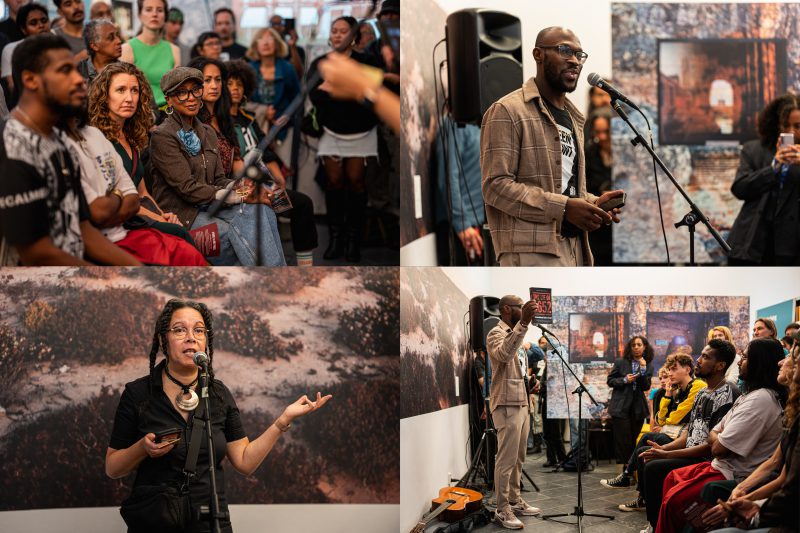 CAPE X UTRECHT – opening: speeches by Mitchel Esajas of The Black Archives and Nancy Jouwe [images: Kaka Lee]
CAPE X UTRECHT – opening: speeches by Mitchel Esajas of The Black Archives and Nancy Jouwe [images: Kaka Lee]
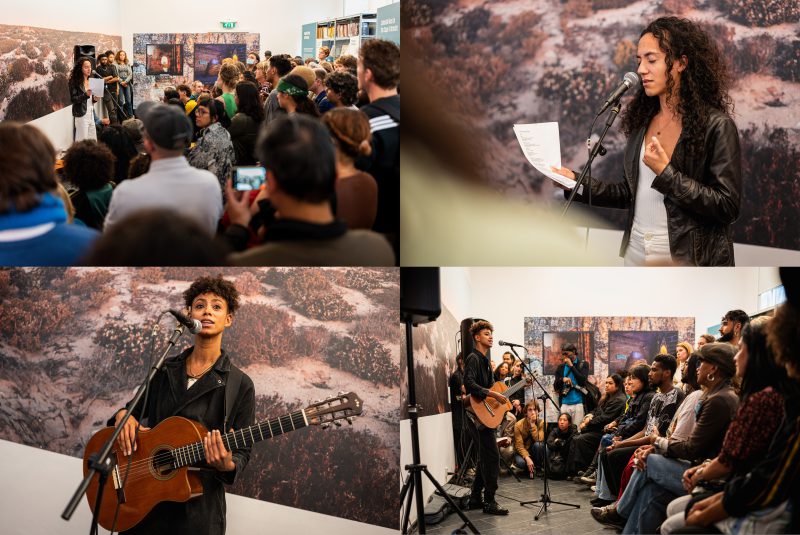 CAPE X UTRECHT – opening: performances by Jasper Albinus and Shishani Vranckx [images: Kaka Lee]
CAPE X UTRECHT – opening: performances by Jasper Albinus and Shishani Vranckx [images: Kaka Lee]
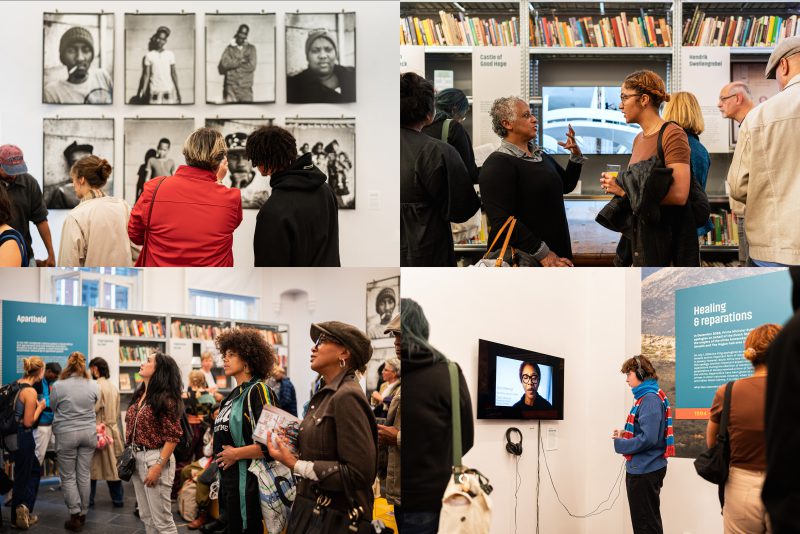 CAPE X UTRECHT – opening [images: Kaka Lee]
CAPE X UTRECHT – opening [images: Kaka Lee]
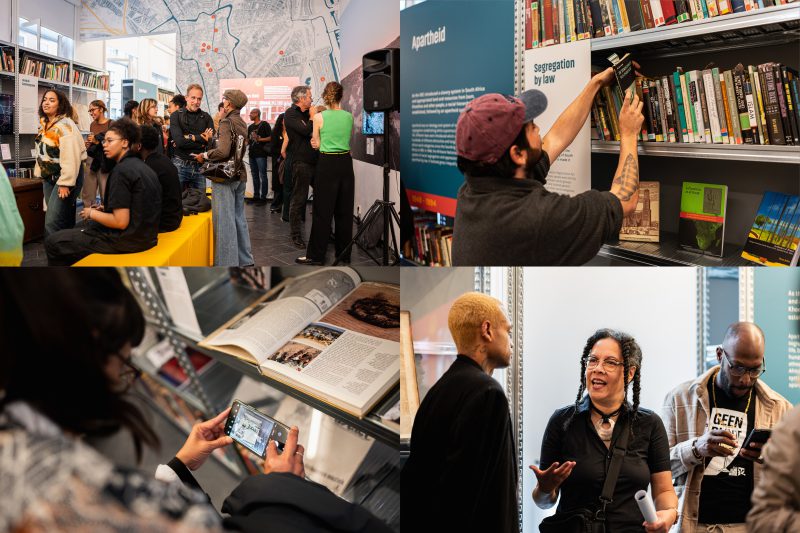 CAPE X UTRECHT – opening [images: Kaka Lee]
CAPE X UTRECHT – opening [images: Kaka Lee]
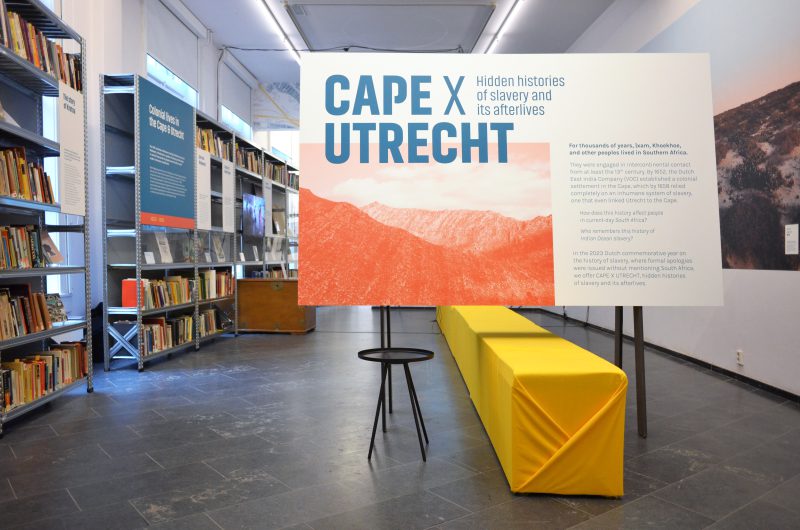 CAPE X UTRECHT
CAPE X UTRECHT
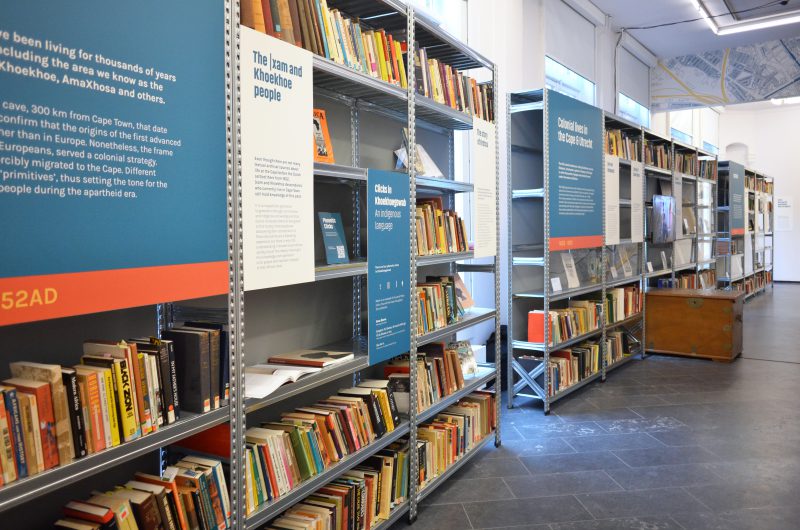 CAPE X UTRECHT (books and artifacts from The Black Archives)
CAPE X UTRECHT (books and artifacts from The Black Archives)
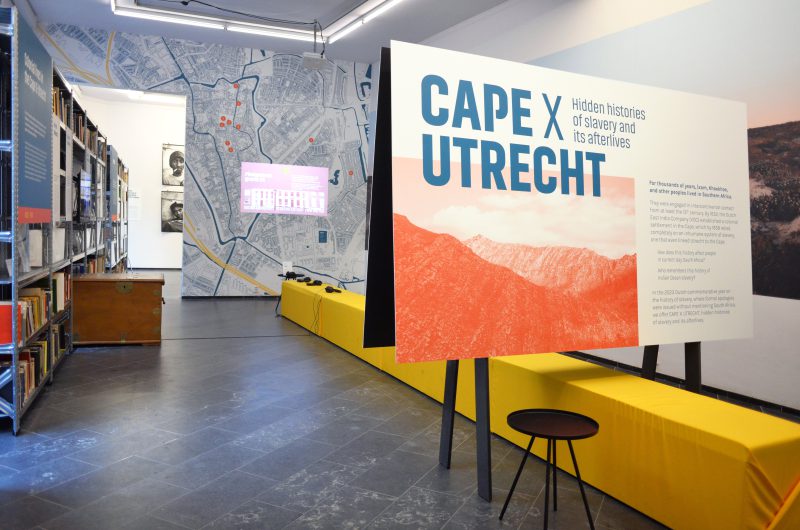 CAPE X UTRECHT
CAPE X UTRECHT
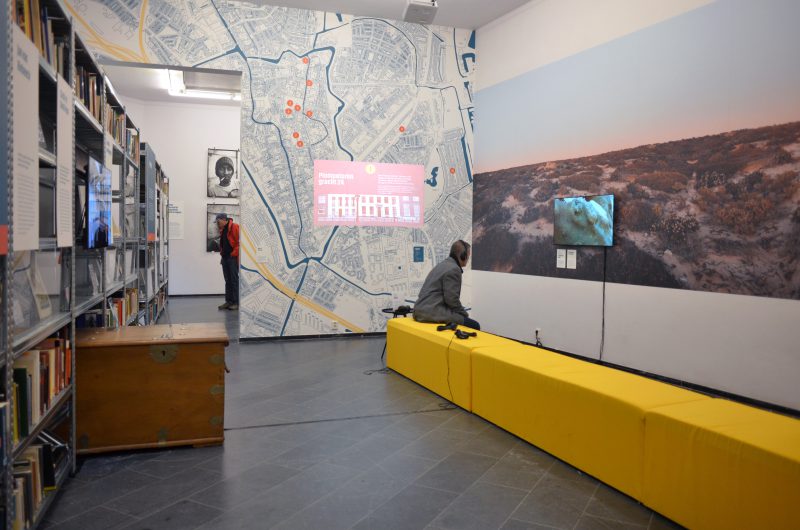 CAPE X UTRECHT
CAPE X UTRECHT
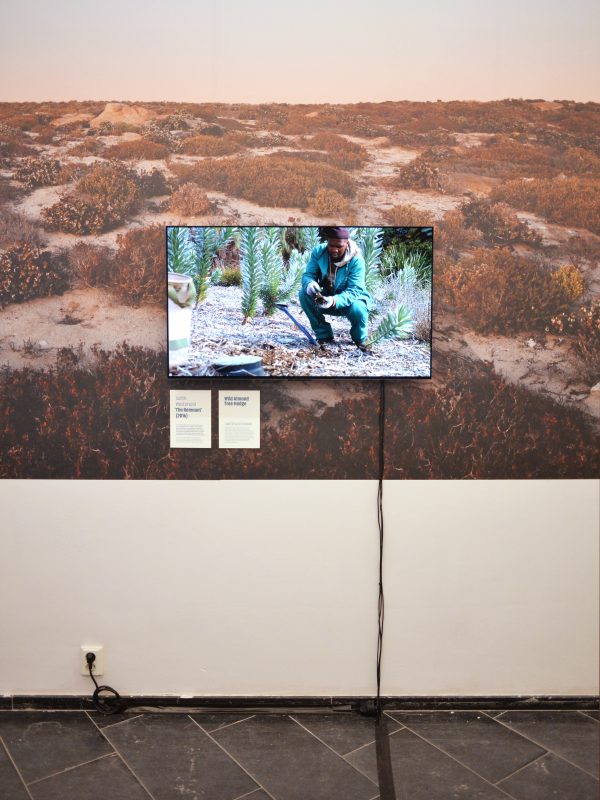 CAPE X UTRECHT (video 'The Remnant' by Judith Westerveld)
CAPE X UTRECHT (video 'The Remnant' by Judith Westerveld)
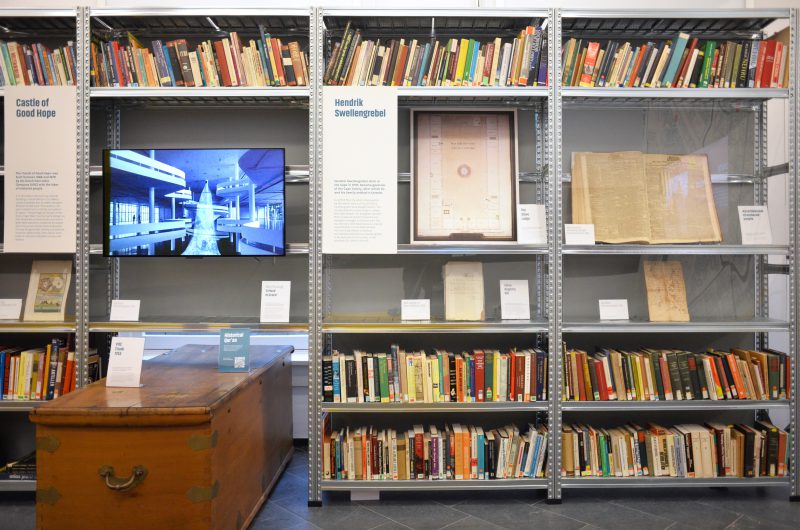 CAPE X UTRECHT
CAPE X UTRECHT
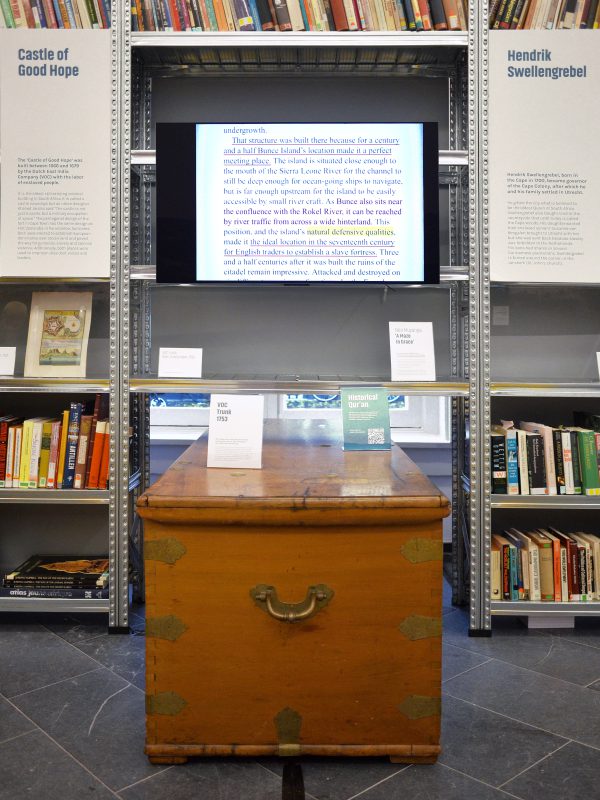 CAPE X UTRECHT (video 'A Maze in Grace' by Nea Muyanga)
CAPE X UTRECHT (video 'A Maze in Grace' by Nea Muyanga)
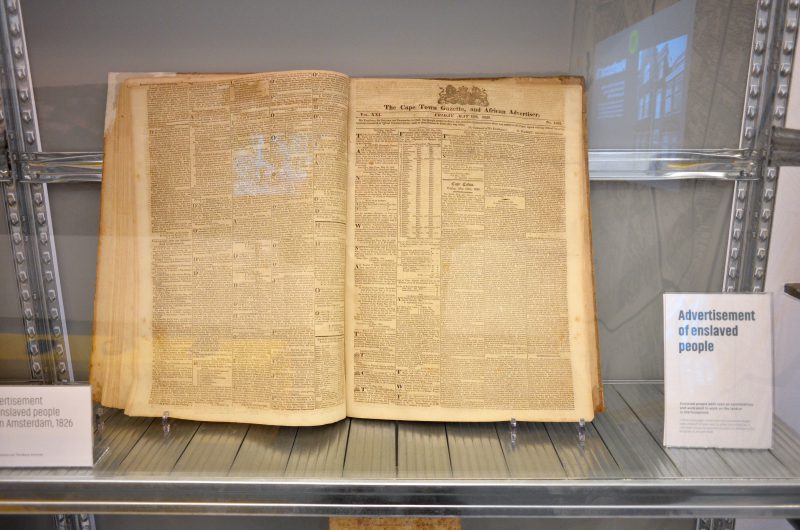 CAPE X UTRECHT
CAPE X UTRECHT
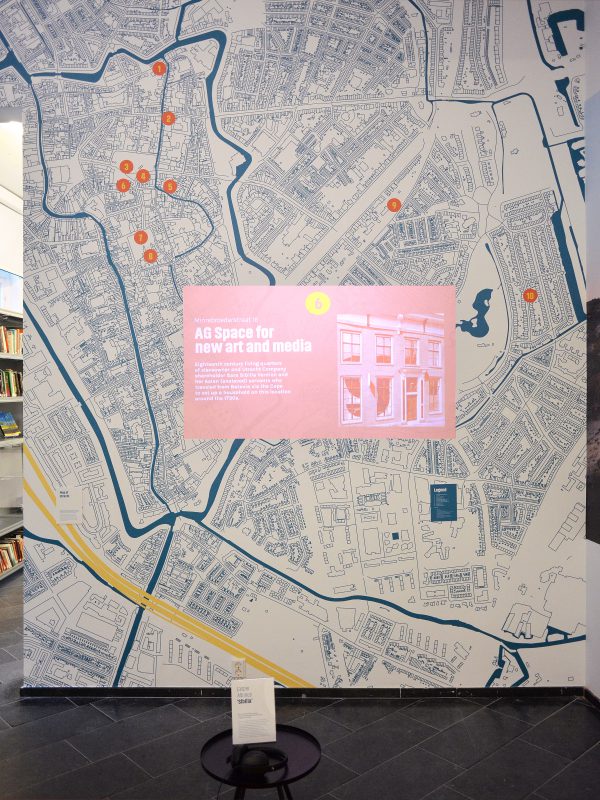 CAPE X UTRECHT (poem 'Sibilla' by Jasper Albinus)
CAPE X UTRECHT (poem 'Sibilla' by Jasper Albinus)
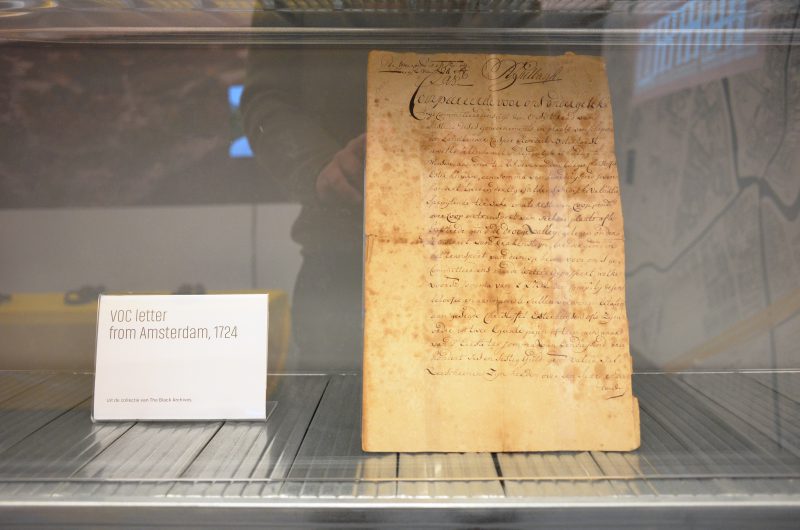 CAPE X UTRECHT
CAPE X UTRECHT
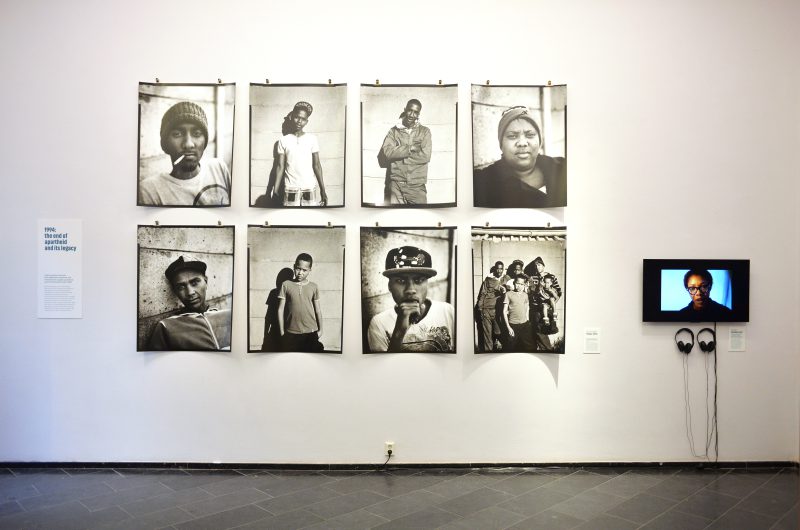 CAPE X UTRECHT (photo series 'Thirppy' by Farren van Wyk)
CAPE X UTRECHT (photo series 'Thirppy' by Farren van Wyk)
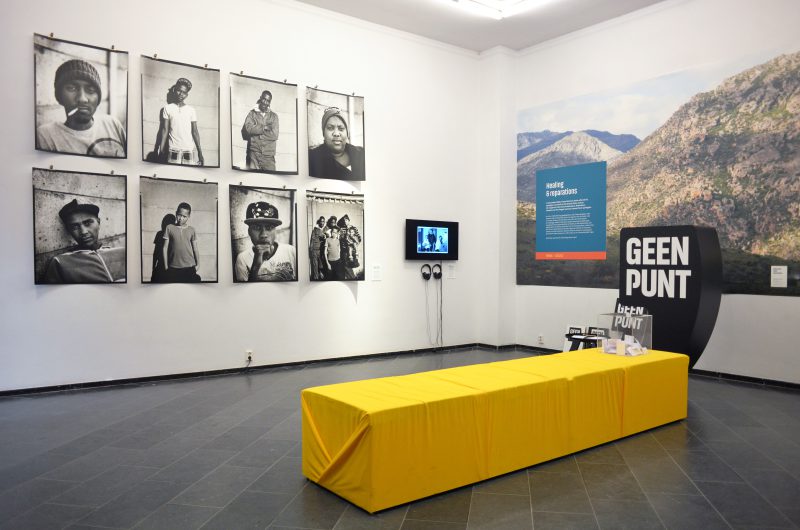 CAPE X UTRECHT
CAPE X UTRECHT
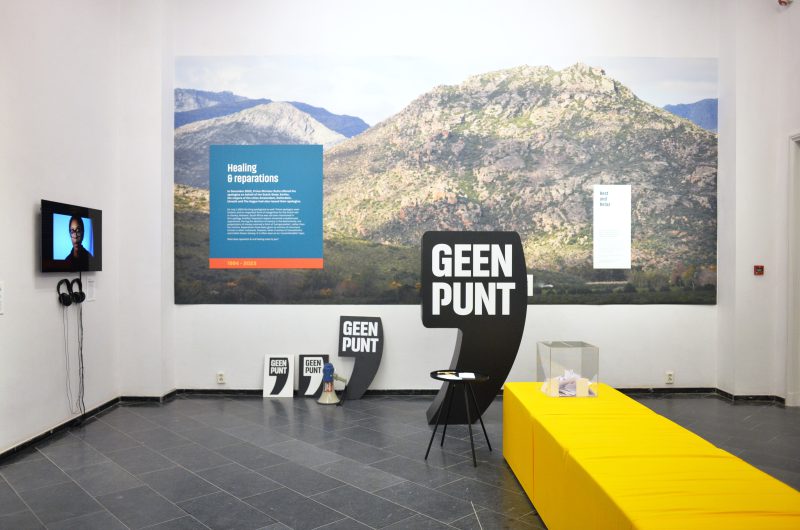 CAPE X UTRECHT
CAPE X UTRECHT
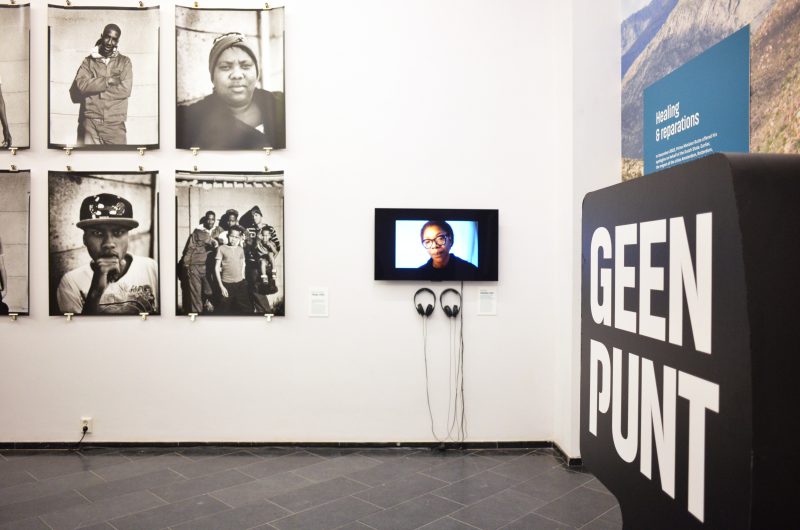 CAPE X UTRECHT (video 'Namibian Tales' by Shishani Vranckx)
CAPE X UTRECHT (video 'Namibian Tales' by Shishani Vranckx)
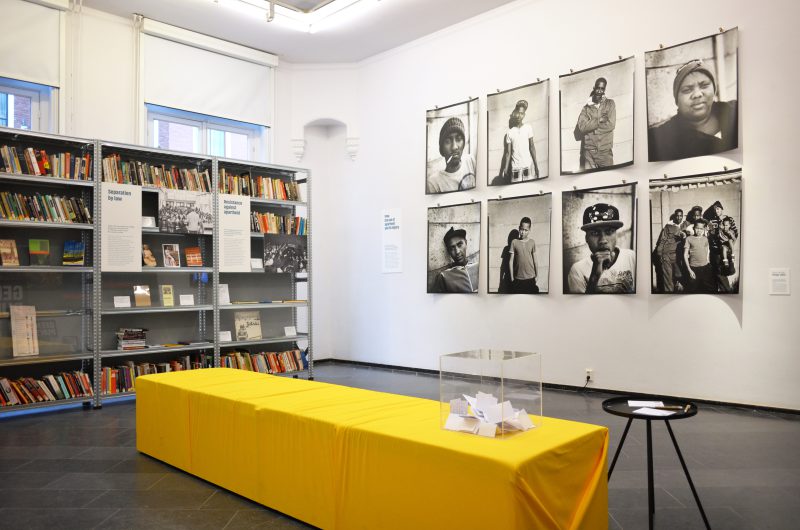 CAPE X UTRECHT
CAPE X UTRECHT
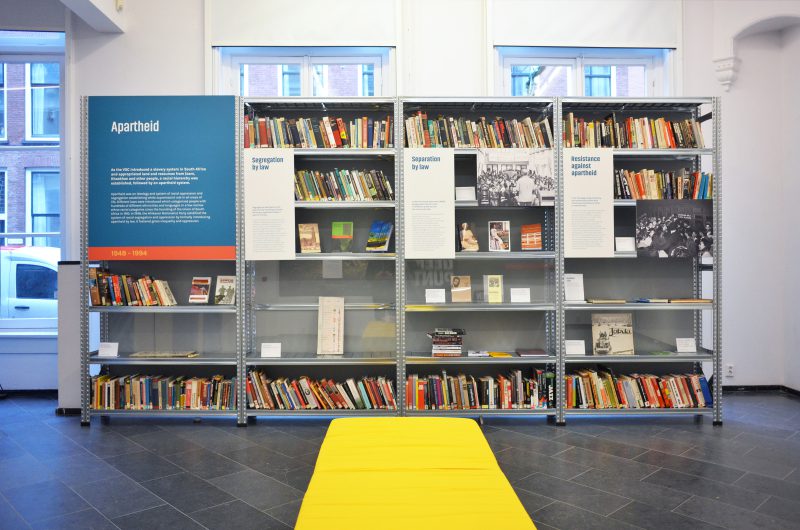 CAPE X UTRECHT
CAPE X UTRECHT
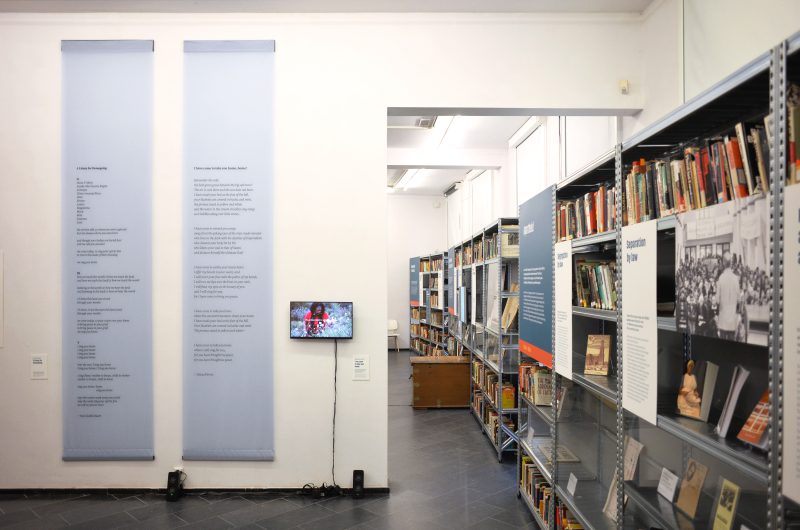 CAPE X UTRECHT (poems by Toni Stuart and Diana Ferrus)
CAPE X UTRECHT (poems by Toni Stuart and Diana Ferrus)
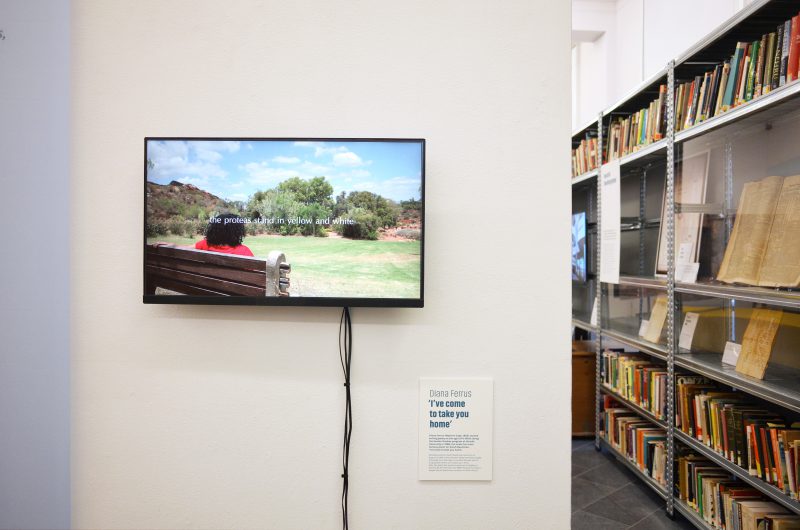 CAPE X UTRECHT (Diana Ferrus)
CAPE X UTRECHT (Diana Ferrus)
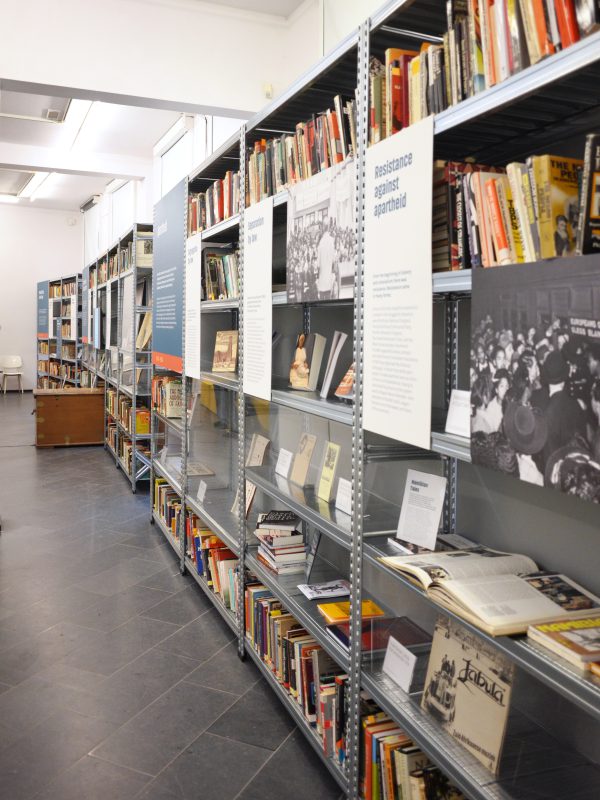 CAPE X UTRECHT
CAPE X UTRECHT
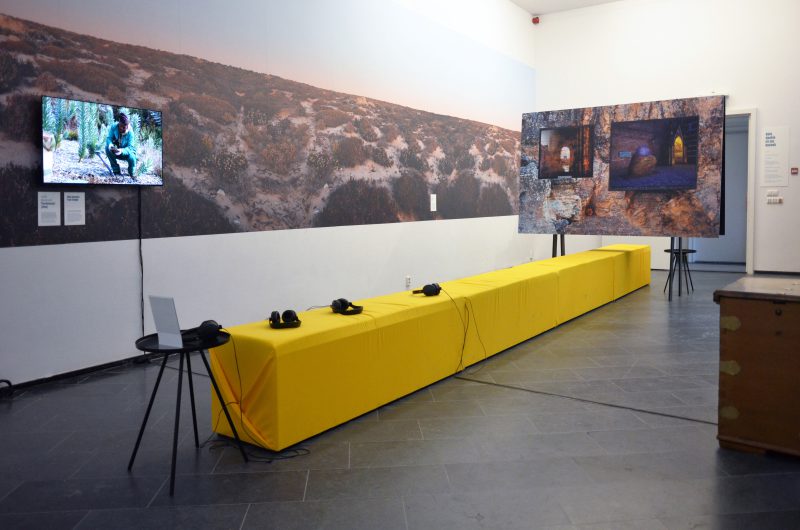 CAPE X UTRECHT
CAPE X UTRECHT
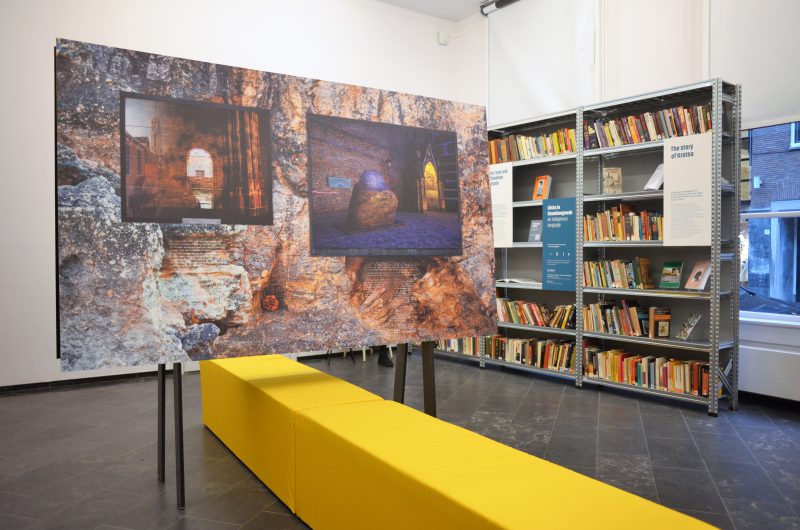 CAPE X UTRECHT (collage by Carine Zaayman)
CAPE X UTRECHT (collage by Carine Zaayman)
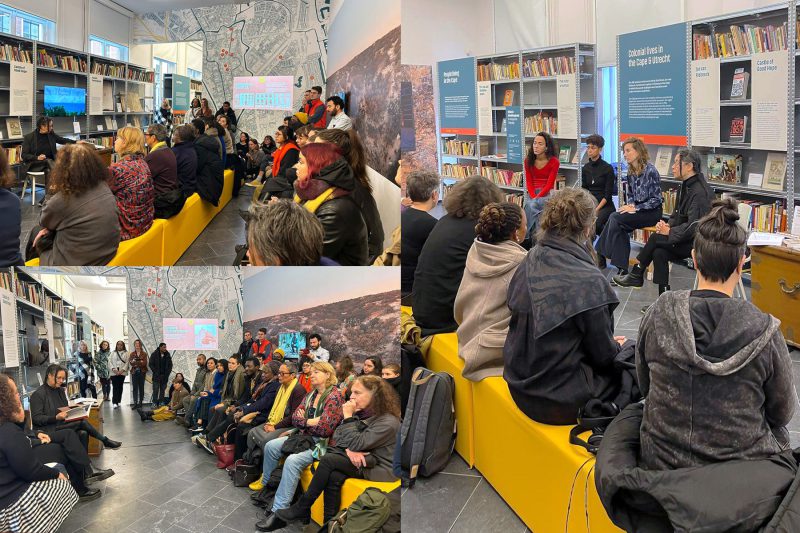 CAPE X UTRECHT – artist talks
CAPE X UTRECHT – artist talks
